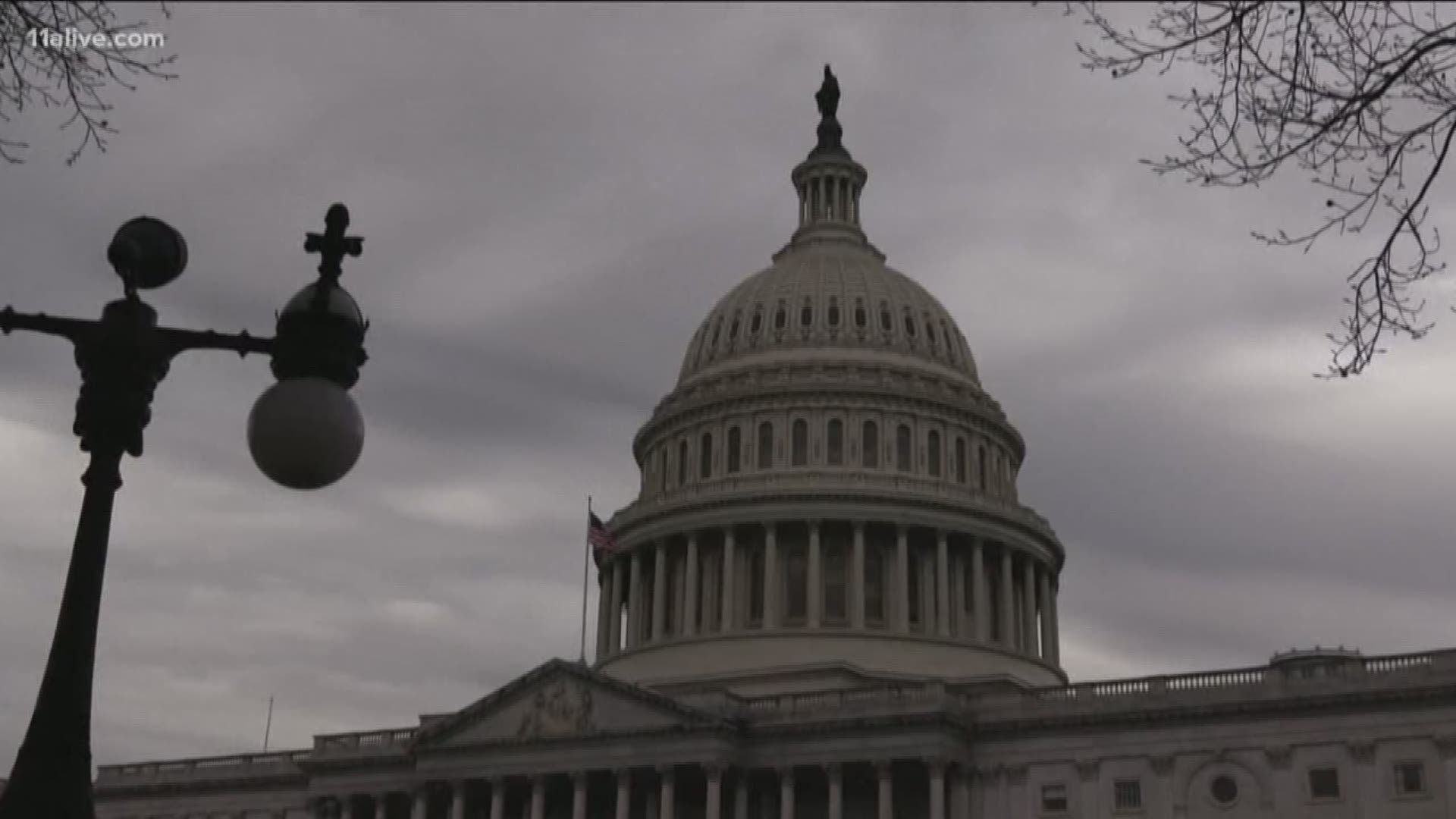ATLANTA — As the shutdown continues, federal workers - like those working in Atlanta's airports - have already gone through one pay period with no check.
So what happens if the longest government shutdown in U.S. history combines with traffic for the biggest game of the year - at the world's busiest airport?
Even Georgia's own Sen. Johnny Isakson has concerns with no obvious end in sight for this government stalemate.
"We have a Super Bowl coming to Atlanta in three weeks - the biggest tourism event in the world - this year," he said. "What if the largest airport in the world goes out of business because the TSA strikes? Then you've just cost millions of dollars to the city of Atlanta - my home state."
So 11Alive went to verify whether federal workers who are not getting paychecks can legally strike. To get the answer, we looked way back to the Taft-Hartley Act of 1947. That act specifically makes it illegal for federal workers to strike - and it's been tested.
In 1981, 11,000 air traffic controllers walked out. President Ronald Reagan fired them all.
So can federal workers legally strike? The answer is no meaning this is FALSE.
But will that remain the case? That's not so clear. Unions representing air traffic controllers and the Transportation Safety Administration (TSA) have filed a lawsuit claiming that the federal government is violating an even older law - the 1938 Fair Labor Standards Act.
If a judge rules in their favor, it would be a major problem getting people in and out of Atlanta for the Super Bowl.
And that's something on the minds of Atlanta city leaders. On Tuesday, Mayor Keisha Lance Bottoms said she's incredibly hopeful the shutdown will be over by then.
But, if it isn't, she's not worried about getting people to Atlanta. Instead, she's more concerned about getting people out on Monday when 110,000 people are expected to fly.
RELATED:
► FAFSA fears | Shutdown brings concerns over financial aid
► Migos rapper invites Clemson Tigers for dinner after Trump’s fast food gesture
► Sen. Isakson proposes entry fee for visitors to the United States to fund border security

